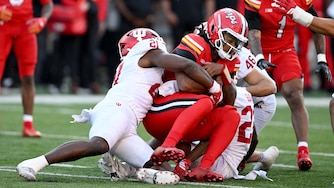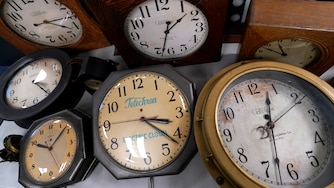When Melissa Yukna launched Waverly Brewing Co. in 2015, she was one of just a small handful of breweries in the city, catering to a small but growing demographic of local beer fans. The excitement from customers was palpable.
“When we opened, you would have thought there was a sign on our brewery that said, ‘This is where the unicorns are made,’” she said. “And now they go, ‘Unicorns? I’ve already seen those.’”
In the past few years, Yukna has seen the craft beer industry explode — and now contract. Just in the Hampden and Woodberry neighborhoods immediately surrounding her business, you can find Nepenthe Brewing Co. and Union Craft Brewing. There used to be more: Pariah Brewing, which was located across the street from Waverly, shut down and was evicted by its landlord earlier this month.
Seventeen breweries have closed in the state during the last year and a half, said Kelly Dudeck, executive director of the Brewers Association of Maryland. “That paints a stark picture of the challenges our breweries face,” she said. Among them, Full Tilt shut its doors last year, citing “crippling inflation” as a factor. In November, Suspended Brewing closed down its Pigtown taproom, writing in an Instagram post that the business “barely made it through the pandemic.”
At the same time, new breweries are welcoming customers, including M8 Beer, which took over the space left by Checkerspot when the latter relocated. Locust Point’s Diamondback recently announced plans to open a second location — a collaboration with a local coffee roaster — in Timonium. And more players are preparing to enter the field. In Maryland, there are 12 breweries set to open this year, Dudeck said.

The situation mirrors larger shifts in the brewing world, where the number of craft brewers has grown fast over the past 10 years. Arguably, too fast. According to a report from the Brewers Association, 2023 saw an “all-time high” number of craft breweries in the United States, at a time when the overall beer market is shrinking.
Read More
“There’s definitely a lot more competition,” said Jeff Osborne, a former squash pro who moved here from Australia and opened M8 Beer last year. “It’s not an easy market.”
Smaller breweries can have a hard time getting picked up by large distributors with an increasing number of craft brewers vying for limited shelf space at liquor stores, according to Union Craft Brewing co-founder Adam Benesch. “You’re competing against the macrobreweries,” he said.
The rising cost of doing of business also adds to the pressure. Compared to when Waverly first opened, “We’re spending 20 to 30% more to make the exact same revenue,” Yukna said. Inflation has hit everything from electric bills to the pallets of grain she uses to brew beer. She and co-owner Roy Fisher can’t afford to pay themselves and “are essentially volunteering,” she said.
Meanwhile, more customers are dropping brewery visits and sometimes alcohol from their budgets. Some former drinkers are turning to cannabis, canned cocktails or even sobriety. And Gen Z is drinking far less than previous generations, with a recent Gallup poll showing that fewer than 4 in 10 young adults are regular drinkers, down from nearly half of young adults 20 years ago.
Brewers that do succeed often find ways to diversify their revenue streams by hosting events, opening restaurants or increasing distribution of their products.

“Making good beer is only a small piece of making a brewery successful,” said M8′s Osborne, whose business relies on a mix of sales from its taproom as well as distribution and events like weddings. While it’s easy to be “gloom and doom” about the situation, he pointed out “there’s quite a few breweries in Baltimore that are doing really, really well.”
But owners of even seemingly thriving establishments like Union Craft Brewing, which was located at Pariah’s former spot before moving to a larger space in Medfield, said they face the same challenges met by other brewers and entrepreneurs. “It’s hard and scary times for any small business,” Benesch said.
For Yukna, just maintaining the status quo is an ongoing challenge. She empathizes with the owners of Pariah, who wrote in an Instagram post that they “should have closed a year ago.” She and Fisher often tell each other, “We should just get out of this.” Every day they say they quit, but every morning, they return to the brewery.
To keep the craft scene alive, brewers and advocates hope to convince customers of the importance of drinking beer that’s produced close to home.
“We don’t ever want to be out there telling people to drink more,” Dudeck said. “But if you’re already choosing to drink, it’s so important to choose local.”





Comments
Welcome to The Banner's subscriber-only commenting community. Please review our community guidelines.